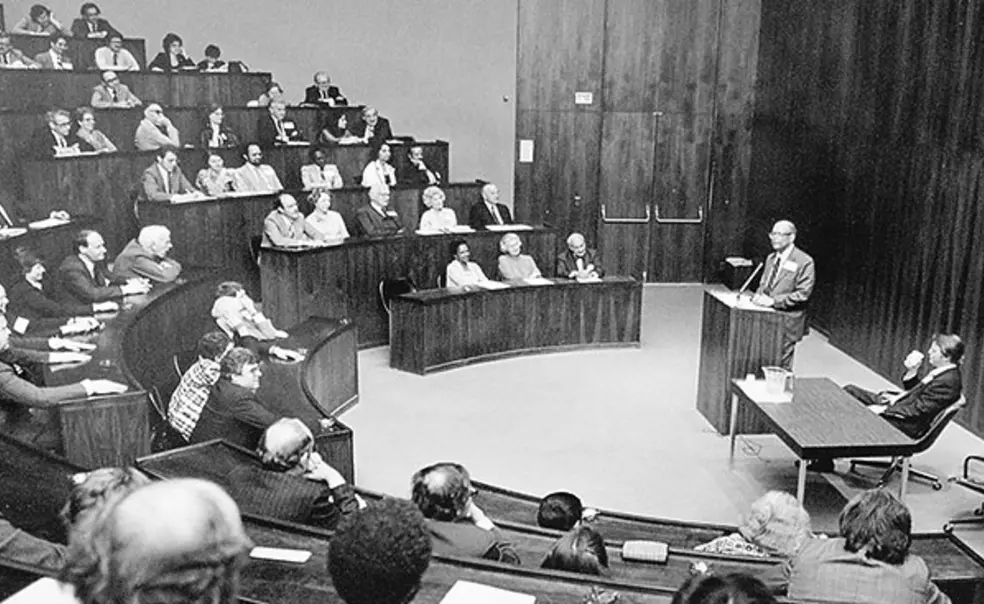Despite his honors and achievements in development economics, many Princetonians had not heard of W. Arthur Lewis until the University announced last month that the main auditorium in the Woodrow Wilson School’s Robertson Hall would be renamed in his honor. Who was he?
Lewis became the University’s first black full professor when he was hired in 1963 as an economics and international affairs professor. He already had a distinguished reputation in academia and public policy. “He was larger than life,” said economics professor Gene Grossman, whose first teaching assignment at Princeton was with Lewis.
Colleagues in the Wilson School and the economics department recalled Lewis as “brilliant.” In research and in life, Lewis concentrated on global poverty. He is known for his groundbreaking work in the field of development economics, for which he introduced models for studying economic structures in developing countries. He published 80 professional articles and 12 books on the subject.
Colleagues said his research, including the introduction of the dual-sector model (also known as the Lewis model), is still referenced and relevant today. His model describes the transition of excess labor from traditional agricultural employment to capital-intensive industry in developing countries.
He was knighted for his contributions to economics the same year he moved to Princeton. Lewis won the Nobel Prize in 1979, and he remains the only black person to be honored in a category other than peace or literature. He retired in 1983, and received an honorary degree from the University in 1988.
Lewis also was the first economic adviser to Ghana, the managing director of the U.N. Special Fund, and the president of the Caribbean Development Bank.
Lewis died in 1991 and was buried near his birthplace in St. Lucia. A college on the island is named after him, and his face appears on the $100 bill used by several eastern Caribbean countries.
Several colleagues described Lewis as “a man of culture and society” with a great sense of humor. He was committed to his research and his students, they said, and despite his professional success, was humble and interested in helping others.
The University’s Sir W. Arthur Lewis Fund supports summer internships for M.P.A. students, with priority given to underrepresented minorities.
“He was an encouraging kind of mentor, and he saw the best in people and the best that people could do,” said Robert Tignor, professor emeritus of history, who authored the book, W. Arthur Lewis and the Birth of Development Economics. “He helped to create an entire generation of development economists.”












No responses yet